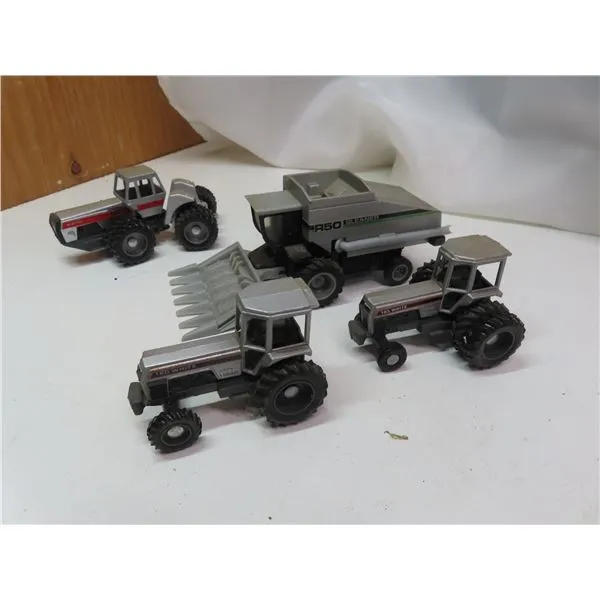Top 5 Wholesale Diecast Tractor Buying Tips
Venturing into the world of wholesale diecast tractors can be a rewarding business, whether you’re a seasoned collector or an aspiring entrepreneur. However, to ensure success, it’s essential to approach the process strategically. This guide provides the top 5 buying tips, offering insights into research, quality assessment, negotiation, and logistics, to help you build a profitable and fulfilling wholesale diecast tractor business. By following these tips, you’ll be well-equipped to navigate the market, identify high-quality models, and secure the best deals, setting the foundation for a thriving enterprise. Remember to always prioritize quality, conduct thorough research, and build strong relationships with suppliers to create a sustainable business.
Tip 1 Researching Wholesale Suppliers
The foundation of any successful wholesale venture lies in identifying and partnering with reliable suppliers. Your initial step should involve comprehensive research. Look beyond the surface and dig deep to find suppliers who consistently deliver high-quality products, offer competitive pricing, and provide excellent customer service. This research phase is critical for building a sustainable business. Take your time to explore various options before making any commitments. Online marketplaces, industry directories, and trade shows are excellent resources for identifying potential suppliers.
Identifying Reliable Suppliers

Identifying reliable suppliers involves more than just a quick search. Begin by examining their company history, reputation, and the types of diecast tractors they specialize in. Are they known for their adherence to quality standards and timely delivery? Requesting references from other businesses in the industry can provide valuable insights into their reliability and trustworthiness. Assess their product range and ensure it aligns with your business goals and the specific diecast tractor models you intend to offer. Building relationships with suppliers who share your commitment to quality and customer satisfaction is crucial for long-term success. This approach will help you establish a stable and trustworthy supply chain.
Checking Supplier Reviews and Ratings
In today’s digital age, reviews and ratings offer valuable insights into a supplier’s performance. Before making any decisions, thoroughly investigate the online presence of potential suppliers. Check various platforms, including business directories, review websites, and social media channels, for feedback from other businesses. Positive reviews and high ratings often indicate a supplier’s reliability and commitment to customer satisfaction. Conversely, negative reviews should raise red flags. Pay close attention to the types of complaints or concerns mentioned by previous customers, such as poor product quality, late deliveries, or inadequate customer service. Use these insights to make informed decisions about which suppliers align best with your business needs.
Tip 2 Understanding Diecast Tractor Scales
Diecast tractors come in various scales, each offering a different level of detail and size. Understanding these scales is vital to cater to the diverse preferences of your target audience. The scale of a diecast tractor refers to the ratio between the model’s size and the actual size of the real-world tractor. Common scales include 1:16, 1:32, and 1:64. Different scales cater to different collector preferences and display requirements. Consider the specific scale preferences when making your wholesale purchases. This knowledge will enable you to offer a wider range of models and appeal to a broader customer base. It also impacts storage, display, and shipping considerations.
Popular Scales
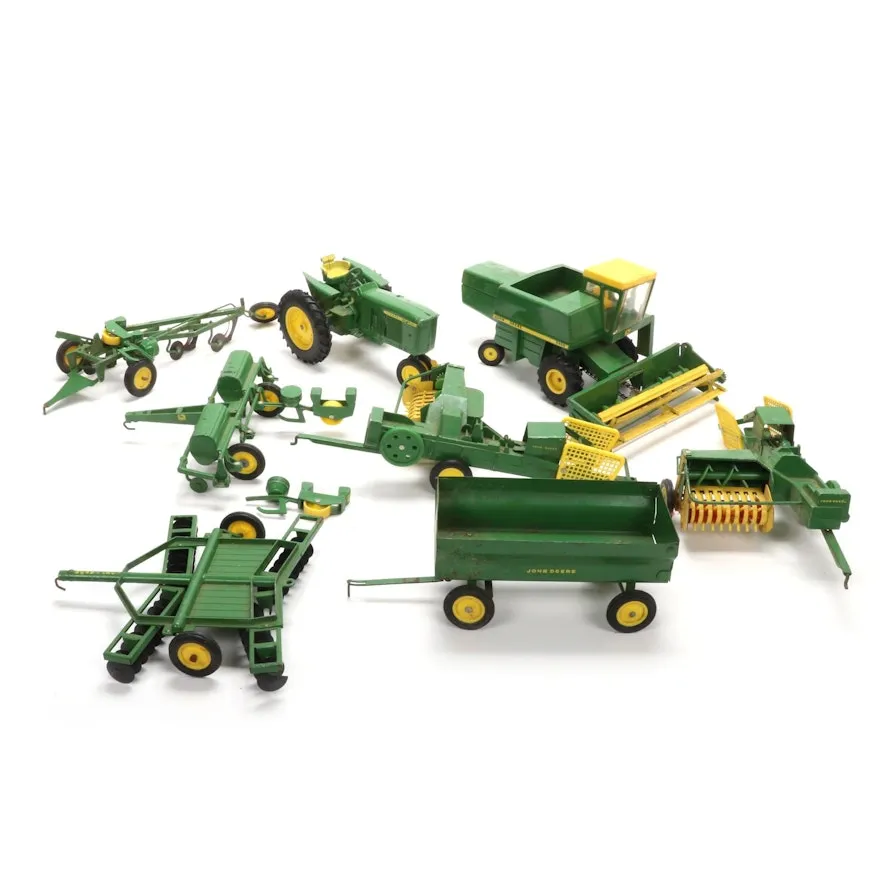
Several scales are popular among diecast tractor collectors. 1:16 scale models are known for their larger size and impressive detail, making them a favorite for serious collectors. 1:32 scale tractors strike a balance between size and detail, offering versatility for various display options. 1:64 scale models are smaller, more affordable, and ideal for collectors with limited space or who prefer to create intricate dioramas. When selecting wholesale models, consider offering a variety of scales to cater to the diverse preferences of your customers. Analyze current market trends to gauge the demand for specific scales. Understanding the popularity of these different scales is crucial for aligning your inventory with the needs of your customers.
Scale vs. Detail
The scale of a diecast tractor significantly influences the level of detail that can be incorporated into the model. Larger scale models, such as 1:16, generally allow for more intricate detailing and realistic features. Smaller scale models, like 1:64, may have fewer details due to size constraints. Consider your target audience and their appreciation for detail when selecting models. Some collectors prioritize accuracy and intricate features, while others may value a wider collection at a lower price point. High-quality models feature authentic paint schemes, realistic decals, and functional components. Understanding the relationship between scale and detail will help you provide a diverse range of products that will satisfy your customer base.
Tip 3 Assessing Tractor Quality and Detail
Quality and detail are essential factors to consider when assessing wholesale diecast tractors. The materials used, construction methods, and level of authenticity significantly impact the value and appeal of the models. A focus on quality will not only enhance customer satisfaction but also enhance your reputation within the diecast tractor community. High-quality diecast tractors are durable, accurately represent their real-life counterparts, and offer lasting value. Ensure the models you select meet high standards, and your customer base will appreciate this. Evaluate the craftsmanship, paint quality, and attention to detail to ensure that the models will meet or exceed expectations.
Material and Construction
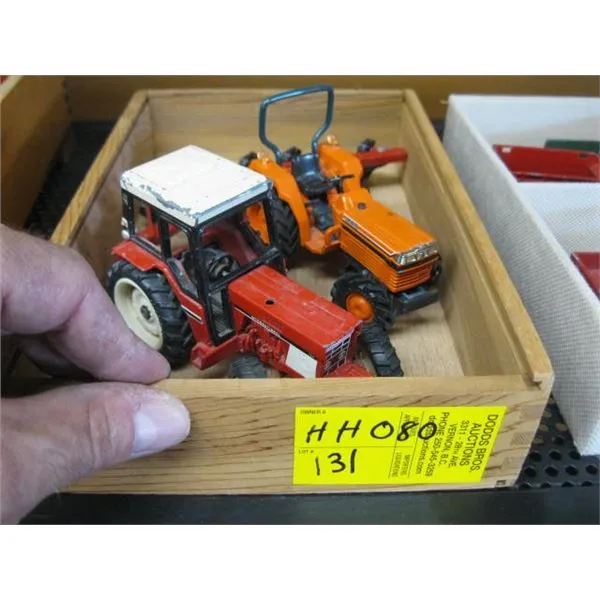
The materials and construction quality of a diecast tractor directly impact its durability and value. Diecast metal is a popular choice due to its weight and ability to capture fine details. Assess the quality of the diecast metal used in the models, ensuring it is free of defects and has a smooth finish. Examine the construction methods to ensure the models are assembled securely. Look for models with moving parts that function smoothly and accurately. High-quality models utilize durable materials, precise assembly techniques, and reliable mechanisms. Prioritize suppliers who maintain high standards for materials and construction to provide your customers with models that will last.
Authenticity of Design
Authenticity of design is another crucial aspect of assessing diecast tractors. The models should accurately represent the real-world tractors, paying attention to the details of the paint schemes, decals, and overall design. Research the history of the models and ensure they are accurate representations of their original counterparts. Examine details like the placement of the lights, the design of the wheels, and the overall aesthetic. High-quality models often feature realistic detailing, such as engine components, operator cabins, and other intricate features. This attention to detail adds value to the models and enhances their appeal to collectors. Prioritize models that accurately capture the essence of the original tractors.
Tip 4 Negotiating Wholesale Prices
Negotiating favorable wholesale prices is critical for maximizing profitability in the diecast tractor business. Several factors influence pricing, including order quantities, payment terms, and market demand. Developing effective negotiation skills is crucial to secure the best deals and ensure the long-term success of your business. Before initiating negotiations, research the average market prices for the models you are interested in, so you have a clear understanding of the pricing landscape. Build relationships with suppliers to establish trust and rapport. Remember, successful negotiation involves finding mutually beneficial terms that meet the needs of both parties.
Minimum Order Quantities (MOQs)
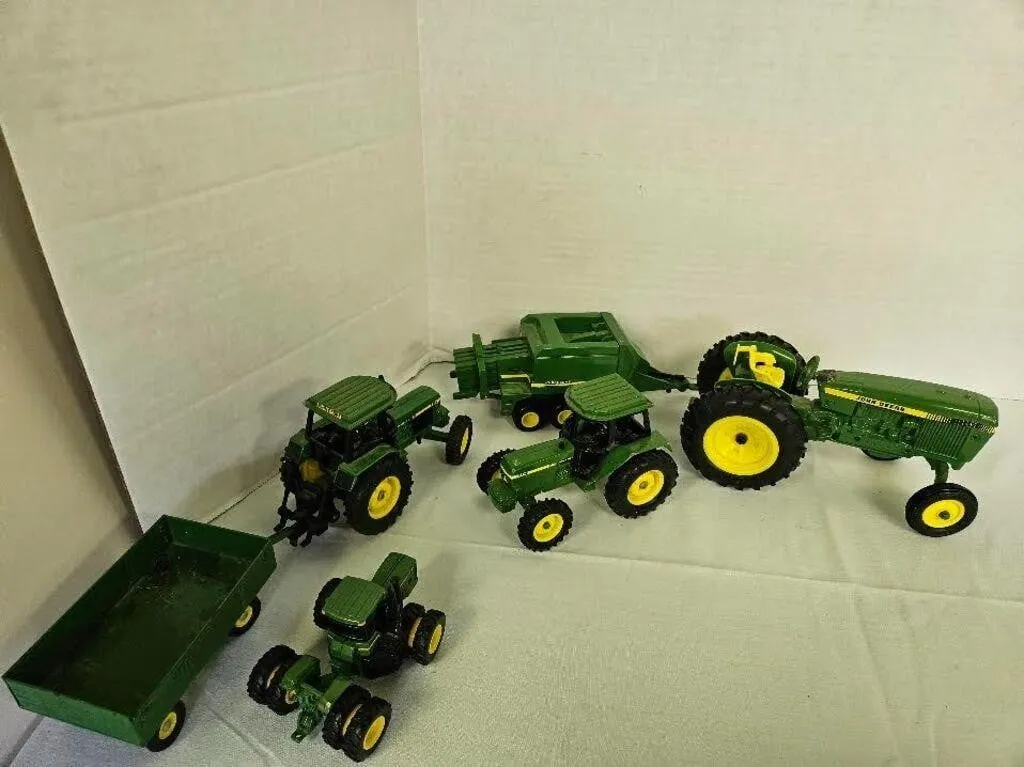
Minimum order quantities (MOQs) are a common practice in wholesale transactions. Suppliers often set MOQs to ensure that orders are profitable and justify the operational costs. When negotiating, inquire about the MOQ for the models you are interested in. If the MOQ is too high, you may need to explore alternative models or suppliers with lower MOQs. Determine if there is any flexibility in the MOQ. Suppliers may be willing to negotiate based on your order volume or the long-term potential of your business. Consider ordering a mix of models to reach the MOQ. Always assess your inventory capacity and the potential demand for the models before committing to large orders.
Payment Terms and Discounts
Payment terms and discounts are significant factors to consider when negotiating wholesale prices. Determine the payment terms offered by the supplier. Some suppliers may offer discounts for early payments or bulk orders. Inquire about any available discounts, such as those based on order volume or the establishment of long-term partnerships. Understand the payment methods accepted and their associated fees. Negotiating favorable payment terms can positively impact your cash flow and overall profitability. Always review the terms and conditions carefully before agreeing to any deals, to ensure they are clear and favorable to your business. Taking time on this can help you secure more competitive pricing and reduce financial strain.
Tip 5 Considering Shipping and Logistics
Shipping and logistics are crucial aspects to consider when sourcing wholesale diecast tractors. Effective shipping practices ensure the timely delivery of your products, while also safeguarding their condition. Thorough planning and careful management can help you minimize costs, prevent damages, and keep your customers happy. Select suppliers with a reliable shipping process and assess the associated costs. Review the shipping options available, including delivery times, tracking capabilities, and insurance coverage. Consider how these elements fit into your business model and your customers’ expectations.
Shipping Costs and Options
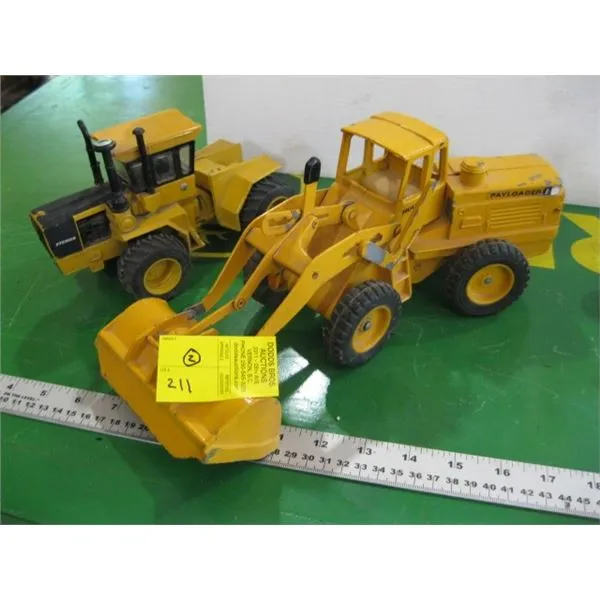
Shipping costs can significantly impact your overall costs. It’s crucial to compare the shipping options offered by different suppliers and choose the most cost-effective solutions. Factors such as the size and weight of the packages, the destination, and the speed of delivery all influence shipping costs. Research and compare different carriers, such as postal services, express couriers, and freight forwarders. Inquire about any discounts or negotiated rates that suppliers may offer. Consider using multiple shipping options to accommodate the varied needs of your customers, such as expedited shipping for urgent orders and standard shipping for cost-conscious customers. Make sure to calculate shipping costs when determining your pricing.
Insurance and Handling
Insurance and handling are vital components of shipping and logistics. Ensure that the supplier provides adequate insurance coverage to protect your goods from damage or loss during transit. Confirm the insurance coverage details, including the insured value and the conditions of coverage. Furthermore, inquire about the supplier’s handling practices to prevent damage to the diecast tractors during packaging and shipping. High-quality packaging and careful handling are essential to prevent damage during transit. You should assess the supplier’s handling procedures, which should include using appropriate packaging materials and ensuring the secure placement of the models. Having a clear understanding of insurance and handling helps to mitigate potential risks and protects your investment.
Conclusion
Succeeding in the wholesale diecast tractor market requires a combination of careful planning, diligent research, and a commitment to quality and customer satisfaction. From researching suppliers and understanding diecast tractor scales to assessing quality, negotiating prices, and managing shipping, each step plays a vital role in building a profitable business. By following these top 5 buying tips, you can navigate the market with confidence, secure the best deals, and establish a thriving enterprise. Remember, building strong relationships with suppliers and staying informed about industry trends will be critical for long-term success. With dedication and attention to detail, you can build a successful wholesale business in the world of diecast tractors.
